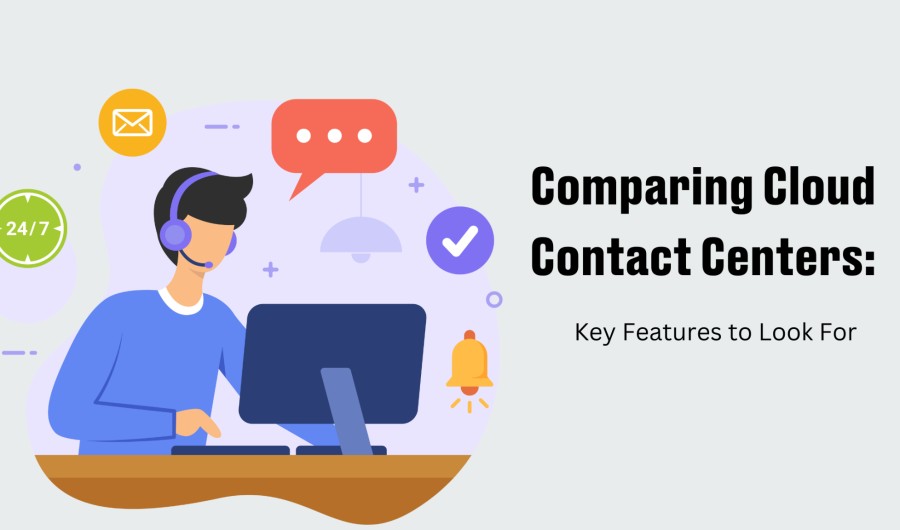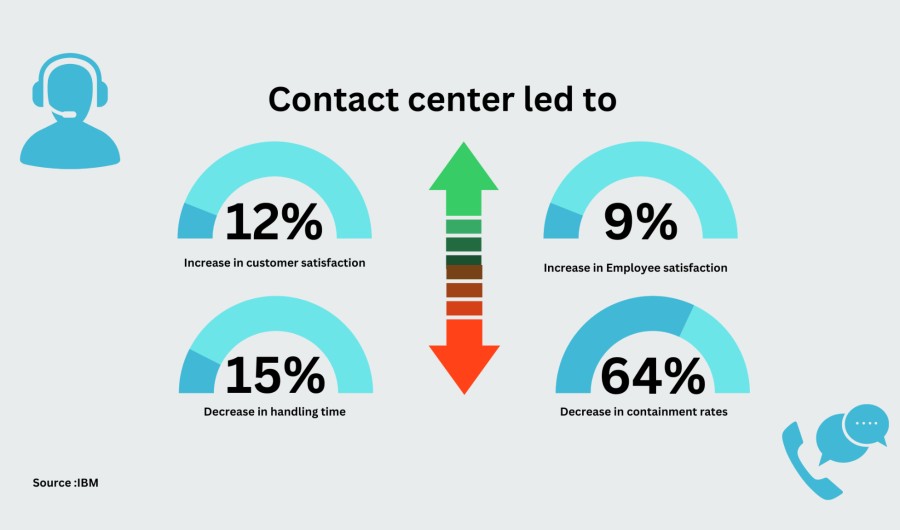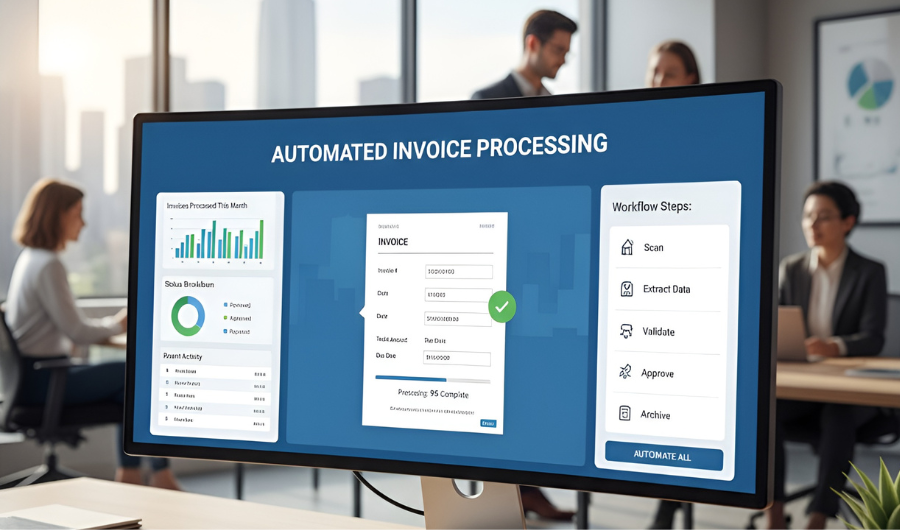
Comparing Cloud Contact Centers: Key Features to Look For
High customer expectations have made contact centers to shape their process based on their experiences and build brand loyalty over time. It is not only a requisite but also an inevitable service for the customers. Using the latest cloud contact center solutions, companies now have access to cutting-edge technology which provides various benefits over traditional on-premises solutions cloud computing has facilitated.
This detailed guide will delve into the most important factors to weigh when contrasting cloud contact centers so that you can make a well-informed choice based on the type of your business.
Integration Capabilities: Streamlining Operations
In the modern business landscape, seamless integration is the cornerstone of efficiency and data consistency. A robust cloud contact center should effortlessly integrate with your existing business tools, such as customer relationship management (CRM) software for call centers, enterprise resource planning (ERP) platforms, and other third-party applications. Understanding what is call center software and how it enhances these integrations can significantly improve operational efficiency and customer service. This integration enables a unified view of customer interactions across various channels, automating processes and enhancing the overall customer experience.
By using pre-built connectors and APIs, companies are able to set up bidirectional flow of data between systems thus ensuring that there is always updated customer info across all integrated systems. Through it not only operational efficiency is improved but it also makes it easier to foster collaboration as well as make decisions since all customer information is available for assessment.
Cost Effectiveness and Scalability: Maximizing Value
There are numerous benefits of cloud-based call centers: reduced costs and flexibility among others. They use cloud-based phone systems for call centers that work as a pay-as-you-go model in contrast to premises based ones requiring huge capital investment in equipment and infrastructure.
Cloud solutions can help businesses avoid costs associated with maintaining and upgrading on-premises systems, thus releasing resources for core operations. In other words, today’s cloud based contact centers offer more scalable contact center services than ever before.
In order to keep up with changing levels of demand for service that often fluctuate—such as during peak periods where demand goes up or low points when it comes down—you can easily adjust using these solutions; this is the time frame when the platforms having this functionality in them are built upon so as to ensure economical utilization of resources.
Advanced Features and Technologies: Enhancing Customer Interactions
At the cutting-edge of innovation are top omnichannel providers for call centers who leverage state-of-the-art technology to transform how customers interact with businesses. They use artificial intelligence (AI) and machine learning (ML) as part of their systems so they can now provide automatic reply messages that can understand your feelings (sentiment analysis) or even hold conversations like real people over phone call routing (conversational text-to-speech).
These functions driven by AI improve customer satisfaction by offering instant and personalized answers, understanding customer emotions accurately, as well as directing them to self-service choices.
In addition, contemporary cloud-based call center solutions offer flawless support across various channels. Clients are given an option of interacting using their chosen channels/particular channels as:- voice, text messages, e-mails, or means related to social media.
This means that irrespective of the kind touchpoint, there will be a strong sense of uniformity and consistency thanks to the omnichannel approach under which such channels are available so that they can serve diverse preferences of today’s consumers.

Source: IBM
Data Security and Compliance: Safeguarding Sensitive Information
With the advent of technology, concerns about data security and compliance have become vital. Protecting sensitive customer data from risk is given priority by cloud contact center providers because they have stringent security measures in place.
This includes data encryption, regular security audits, and compliance certifications such as GDPR, HIPAA, and PCI-DSS, ensuring adherence to data protection and privacy laws in various regions and industries.
By entrusting your customer data to a reputable cloud provider, you can benefit from their dedicated security protocols, state-of-the-art infrastructure, and continuous monitoring for potential threats. These providers invest heavily in maintaining the highest security standards, relieving businesses of the burden of managing complex security measures in-house.
Furthermore, leading cloud providers employ advanced security techniques like multi-factor authentication, role-based access controls, and secure data backups to safeguard against unauthorized access, data breaches, and other cyber threats, giving you peace of mind knowing your sensitive information is protected with utmost diligence.
Analytics and Reporting: Driving Continuous Improvement
It is important that we comprehend how customers act because it allows us to identify certain tendencies and improve service delivery through actual time data analysis and thorough reports which provides insights into what customers want. For operational metrics plus agent performance on customer interactions among others take advantage of powerful analytics that come with cloud-based contact centers.
Through customizable reports and dashboards, companies can keep track of crucial performance indicators (KPIs) as well as monitor team productivity thereby making decisions based on data at the same time striving for continuous betterment. Such information may be used to suggest approaches that improve customer service level, streamline operations, and indicate sections where customer care agents require training.
Also, it allows businesses to proactively address potential problems and use new business chances by using advanced analytics, which helps to generate further insight on patterns and trends that might not be obvious right away.
In addition, these analytical abilities typically rely on artificial intelligence and machine learning to deliver forward-looking insights that enable firms to forecast future consumer wants, predict trends on how much demand there will be for their goods or services, and how best allocate their resources for efficient service delivery.
Support for Remote Work: Enabling Flexibility and Agility
There has been an increasing usage of remote or hybrid working strategies within today’s work culture. To adapt to these movements, developers have come up with comprehensive applications which offer tools and functionalities for communication and organization among distant groups. A unified communication platform integrates various communication methods such as voice, video, and messaging into a single system, enhancing collaboration. Agents will be able to log on into the call center software system from different parts of the globe and still remain connected, thereby ensuring continuous service delivery.
Moreover, supervisors have the ability to keep an eye on how well agents are performing, offer real-time feedback, while still being able to adhere to (SLAs) regardless of their place of work. These systems offer screen sharing mechanisms through the internet such as videos for meetings where people take part through their video calls from different locations simultaneously.
It is a cost-effective approach that enhances knowledge sharing amidst various organizational groups which may not necessarily be located within the same geographical setting. This open-mindedness makes enterprises more competitive by embracing remote employees who can log in even from elsewhere.
Reliability and Uptime: Ensuring Business Continuity
Business continuity is a critical consideration for contact centers, as downtime can result in significant losses in productivity, revenue, and customer satisfaction. Cloud-based contact center providers understand this importance and prioritize high availability and uptime guarantees. By leveraging redundant data centers, load balancing mechanisms, and failover systems, cloud solutions minimize the risk of service disruptions.
Contact centers need to consider the importance of staying in business all the time since any interruption can lead to substantial decline in the amount of work done, income earned and consumer satisfaction.
The vendors of cloud-based contact centers realize the same and as such ensure that they give it the highest priority when choosing their service providers such that they can opt for those whose levels for both reliability and availability are very high. As such, their solutions are able to reduce occurrences where services may be affected by using a spare data center or adding more servers to distribute incoming requests, etc.
In the case of unexpected events that include natural disasters or power outages taking place; this makes it possible for your contact center to continue operating keeping your business continuity as well as confidence among clients. Reliable providers have put significant resources into the establishment of solid systems, creation of mechanisms to prevent redundancy by all means and ensuring a rapid response in case of any rupture.
Conclusion
Choosing the correct cloud-based contact center system is essential in ensuring that customers have excellent experiences in an ever-changing world of business. Customers can go for one solution that fits into their requirement by going through the features such us; immediate integrations, cheap cost-effectiveness, scalability technology, advanced security, deep analytics understanding and telecommuting.
The advantages of knowing these essential factors are that businesses can comfortably adopt cloud-based contact centers, simplify operations and nurture existing customer relationships that enhance expansion and achievement in a business environment characterized by stiff competition. You should start improving your customer service today by exploring cloud-based contact center alternatives.
FAQs
What are the primary cost benefits of using a cloud contact center?
Cloud contact centers reduce upfront costs, offer pay-as-you-go pricing, and enable cost optimization through scalability to match demand fluctuations.
How do cloud contact centers enhance customer service?
They provide multi-channel support, AI-powered capabilities like automated responses and sentiment analysis, and integrated customer data views for personalized service.
What should businesses consider regarding data security when choosing a cloud contact center?
Prioritize solutions with robust data encryption, security audits, compliance with standards like GDPR and HIPAA, and dedicated security teams.
How do cloud contact centers support remote work and hybrid work models?
With agent access from anywhere, performance monitoring, coaching tools, and collaboration features for remote teams.






